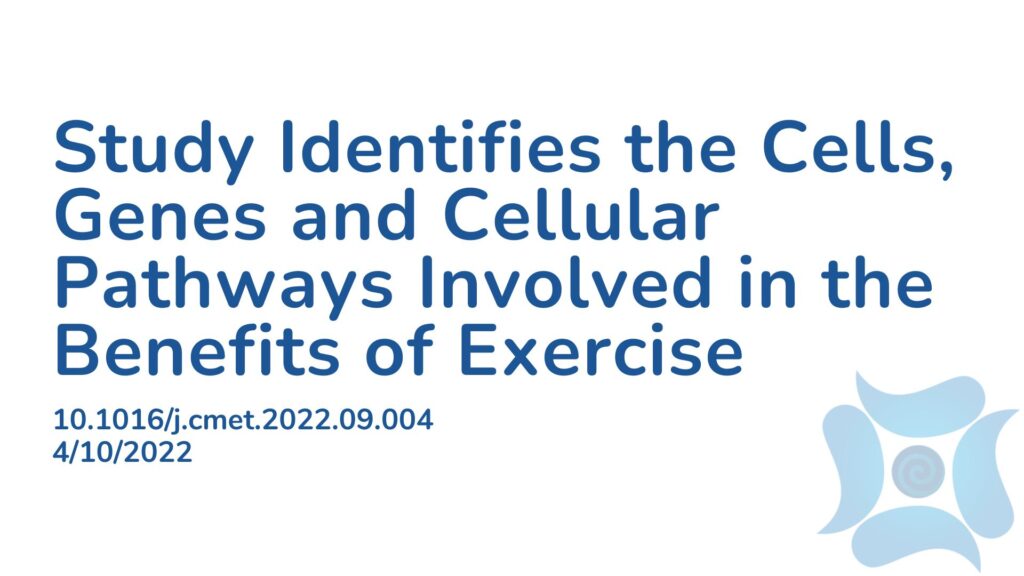Summary: The aim of this paper was to document the ways exercise benefits the body on a cellular and genetic level. The researchers studied mice with either a varied or high-fat diet, who were either active or sedentary. The researchers recorded multiple ways in which genes and cells acted, as well as the impact on 53 types of cells found in skeletal muscle and fatty tissue. The authors intended on uncovering these mechanisms because although it is well known that exercise is critical for overall health and managing excessive weight, its underlying mechanisms are poorly understood. As a result, further developments in this area such as targeted drugs have faced issues. Through mapping the cells, genes, and cellular pathways that are modified by exercise, the authors are able to address the challenges of future research and expand the overall scientific understanding of how exercise and diet affect the body. This study is able to offer potential areas for future research, targeted drugs, or therapies that can enhance or replicate the effects of exercise.
Abstract:
Exercise training is critical for the prevention and treatment of obesity, but its underlying mechanisms remain incompletely understood given the challenge of profiling heterogeneous effects across multiple tissues and cell types. Here, we address this challenge and opposing effects of exercise and high-fat diet (HFD)-induced obesity at single-cell resolution in subcutaneous and visceral white adipose tissue and skeletal muscle in mice with diet and exercise training interventions. We identify a prominent role of mesenchymal stem cells (MSCs) in obesity and exercise-induced tissue adaptation. Among the pathways regulated by exercise and HFD in MSCs across the three tissues, extracellular matrix remodeling and circadian rhythm are the most prominent. Inferred cell-cell interactions implicate within- and multi-tissue crosstalk centered around MSCs. Overall, our work reveals the intricacies and diversity of multi-tissue molecular responses to exercise and obesity and uncovers a previously underappreciated role of MSCs in tissue-specific and multi-tissue beneficial effects of exercise.
Article Publication Date: 4/10/2022
DOI: 10.1016/j.cmet.2022.09.004




